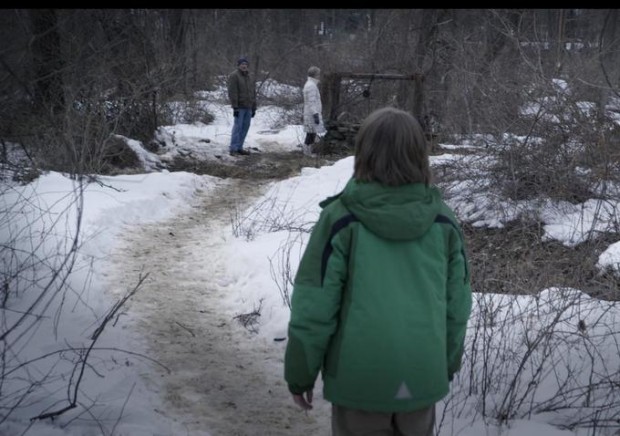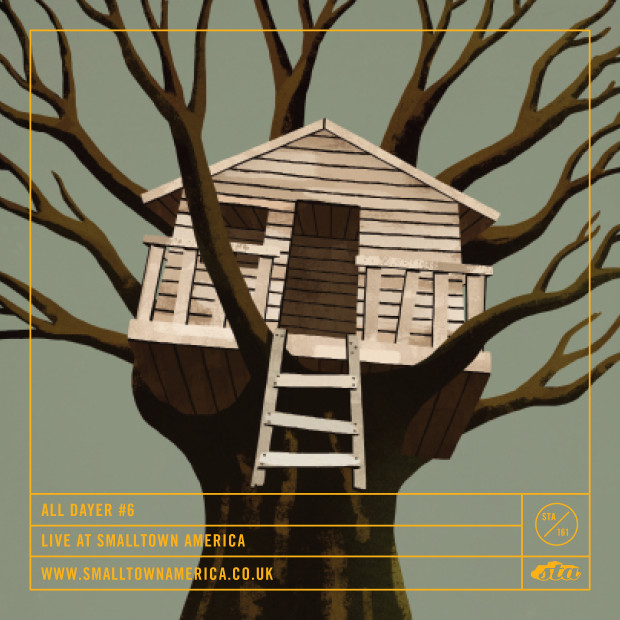It’s hard to deny that M. Night Shyamalan has had one of the more interesting career trajectories in contemporary American cinema. Beginning his career with some middling rom/family-coms, Night found a frankly ridiculous level of success with 2001’s The Sixth Sense”, one of the very few Oscar nominated horror films. He followed this up with two decent, if not spectacular pictures before seemingly deciding to set his bed on fire. The Village and Lady In The Water quite rightly tanked while The Happening may well be one of the most unintentionally hilarious films ever released by a major American studio. Most of these were at least somewhat forgivable missteps. However with The Last Airbender and After Earth, Night completed his descent into washed up has-been, with the former spoiling a thoroughly excellent television show and the latter finding a way to make Will Smith uncharismatic. So what about The Visit then, the promised return to his former zenith and the redeemer of his last five films? There are many things to say about The Visit, but what is most apparent is the film is a very useful tool for pointing to everything that works about Night and his directorial vision and everything that doesn’t.
Two young children are sent to their grandparents’ home for a week while their mother enjoys a well deserved holiday. There is an unspecified past trauma that has severed their mother from her parents and, as such, they’ve never met their elders. In order to try and bridge the gap between their mother and her parents, the children attempt to make a documentary about their trip and their grandparents. However, something is off about Grandma and PopPop and it’s up to the children to document as much as they can, while trying to figure out what is going on.
So let’s talk about the positives first; Kathryn Hahn, who plays the children’s mother, is just wonderful. Her screentime is limited but she is able to infuse a mostly background character with a real sense of warmth and humanity. In one of the film’s more poignant moments, Hahn is able to transition between jovial fun and genuine sadness without missing a beat. Similarly, while Peter McRobbie and Deanna Dunagan do have to play much hammier roles, the duo manage to walk that very fine line between hilariously unnerving and undeniably creepy. Crucially, the film is scary for large segments. Now it’s not entirely groundbreaking or able to redefine the tired found footage genre, but it does have the ability to be quite frightening. It really earns the majority of its scares and opting for slowly increasing the tension rather than the cheap “JUMP AT THE CAMERA AND YELL” moments, although it does fall into that trap at various points. Probably the most interesting element of the film are the thematic undercurrents. There are claustrophobia inducing sequences, a genuine sense of dread and one particularly terrifying moment that feels almost it could be from the Texas Chainsaw Massacre.
The film is about mental illness, losing family members to forces outside your control and the destructive nature of holding onto grudges. It’s about children watching their grandparents slowly fade away, while also losing their parents. It’s in the moments when Shyamalan weaves these ideas into the narrative that you understand see why people got excited about this filmmaker. He’s able to find this visual ways of resolving his characters’ arcs in a way that is both narratively and thematically satisfying and he can control the audience, keeping them second guessing about motives and outcomes, while still keeping characters consistent. Fundamentally, he can make his genre picture be about something other than fun house spooks, which is something that very few can really do.
Which really makes the dialog hurt all the more. The man cannot write dialog for human beings. He’s always had a tin ear for dialogue, the aforementioned Happening is the ultimate example of this, but it’s particularly bad here. Towards the end, characters rather bluntly announce the film’s central themes. Ideas that had been infused into the narrative have just been yanked up into the forefront, where they don’t belong. This is made all the worse by the absence of subtlety in the film. There are these flickers of nuance and misdirection, but mostly the film gets a bullhorn at the ready to let you know what the symbolism is at play here. It’s amateurish screenwriting at best and not the mark of man who has been writing films for the better part of two decades. While there are moments of some clever visual humour, primarily derived from deliberately poor framing, overall the comedy is bad. The “witty banter” between the two young stars is just cringeworthy and not in a Ricky Gervais way, more in the “I have never met a human being and am trying to understand this thing that they refer to as humour” sense. One of the running gags nearly derails the frankly well handled and genuinely taut finale as a character raps the denouement of the film. It’s so horribly misjudged and speaks more of someone who has never directed a project of this scale rather than an Oscar nominee.
Additionally, the found footage gimmick is terribly trying. There is some kind thematic relevance behind it, specifically the insincerity relating to the idea of sincerity and truth, but the gimmick can only run so far before you ask the obvious question: Why are you still filming? While the film does have a slightly inventive way of getting around it, it feels more like a justification for a stylistic decision than realistic narrative choice.
In the end, The Visit is a decidedly decent film. Not perfect, deeply flawed in many ways, but one with a lot to recommend and is easily the greatest thing that M. Night Shyamalan has done in the best part of a decade. Will Murphy





